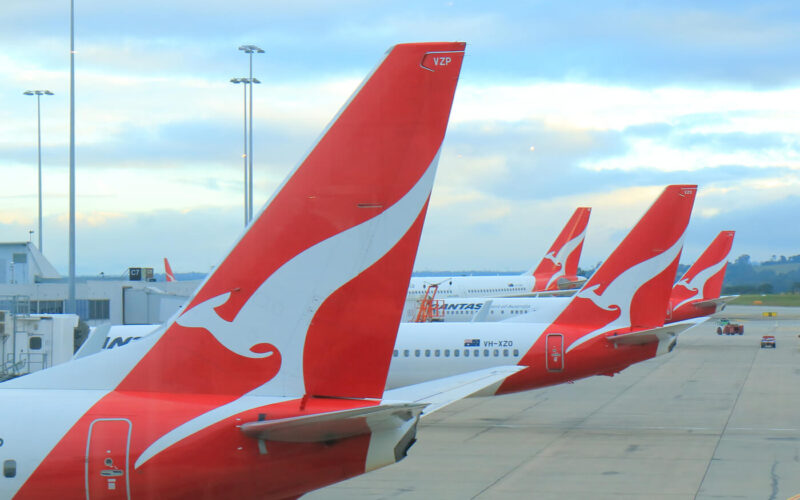Qantas Airways has just released a new safety video. In the 8-minute video, which took 12 months to prepare, the Aussie airline fits not only the usual safety announcements (“dear passengers, please fasten your seatbelts”), but also its own 100 years’ history including the fleet.
Qantas Airways, the flag carrier of Australia, was founded in November 1920, making it the third oldest (still flying) airline in the world. It also makes 2020 the year of Qantas’ centenary, hence, the historic theme in its safety video.
The carrier began its operations with a small biplane Avro 504K, which is seen in the video. “The Avro 504 in the opening scene belongs to the Qantas Founders Museum in Longreach who allowed the aircraft to be taken out of its exhibition to the tarmac,” the airline has explained in a statement. “The Art Director worked with an engineer to design and build a custom slide raft that could be taken off its permanent plinth and moved to the tarmac without damage.”
The planes that flew in the 1930s and had fully enclosed cabins and in-flight bathrooms, are likely flying boats. Qantas was flying them at the end of the decade and, contrary to biplanes flown before, they had enclosed cabins and in-flight bathrooms. Flying boats had an important part in Qantas fleet up until the second half of the 1940s, when the airline started introducing bombers converted to passenger aircraft to its fleet.
It was the Boeing 707 that brought the Aussie airline to the Jet Age in 1959. The last Boeing 707 (although the newer version than the original 707–138 ) was retired in 1979.
The first Queen of the skies, the Boeing 747-238B aircraft, were also introduced in the 70s, in 1971 to be precise. The Boeing 747 shown in the video is sporting the Wunala Dreaming livery, which was recreated using computer generated imagery technology, as outlined in the statement. Wunala Dreaming was the first Australian Aboriginal art design used for Qantas aircraft livery. The Indigenous Australian art scheme is still used on Qantas aircraft liveries today.

